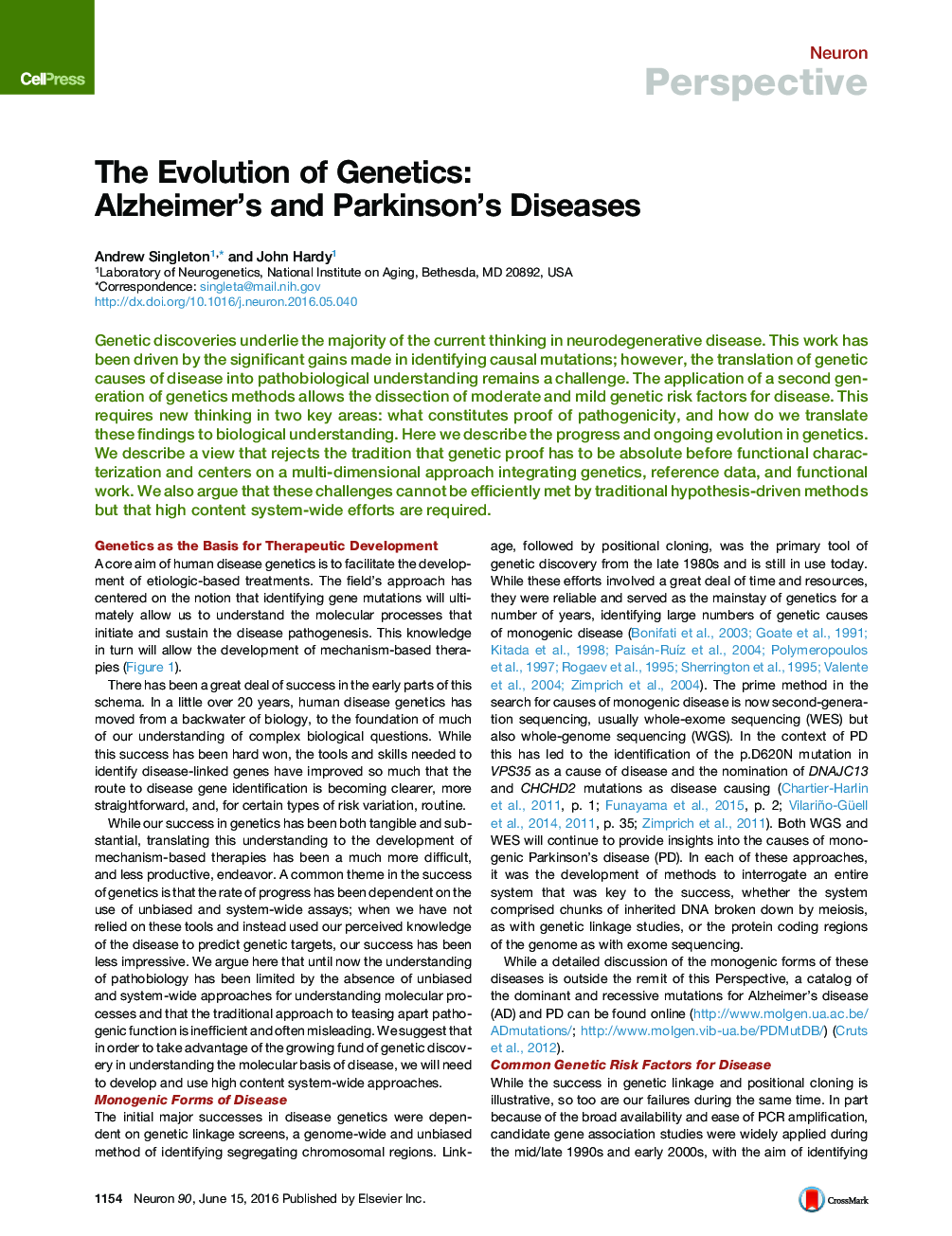| Article ID | Journal | Published Year | Pages | File Type |
|---|---|---|---|---|
| 4320678 | Neuron | 2016 | 10 Pages |
Genetic discoveries underlie the majority of the current thinking in neurodegenerative disease. This work has been driven by the significant gains made in identifying causal mutations; however, the translation of genetic causes of disease into pathobiological understanding remains a challenge. The application of a second generation of genetics methods allows the dissection of moderate and mild genetic risk factors for disease. This requires new thinking in two key areas: what constitutes proof of pathogenicity, and how do we translate these findings to biological understanding. Here we describe the progress and ongoing evolution in genetics. We describe a view that rejects the tradition that genetic proof has to be absolute before functional characterization and centers on a multi-dimensional approach integrating genetics, reference data, and functional work. We also argue that these challenges cannot be efficiently met by traditional hypothesis-driven methods but that high content system-wide efforts are required.
